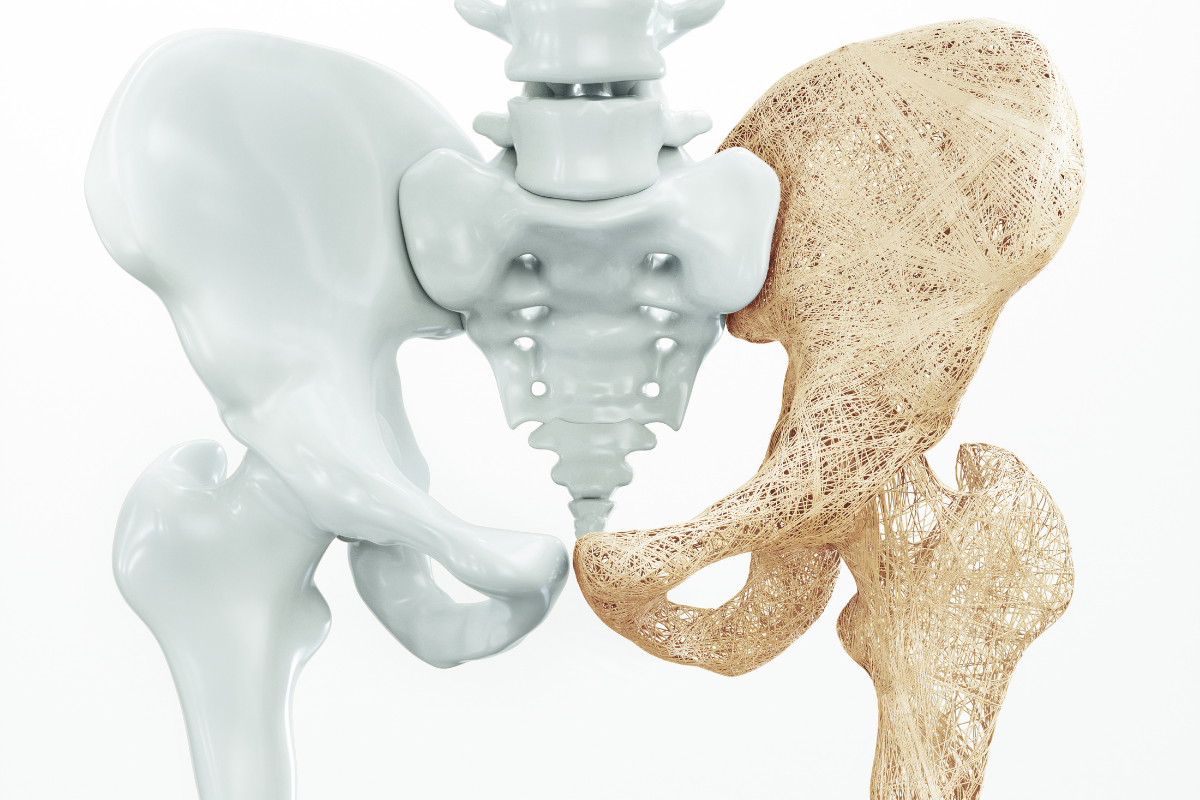THERAPEUTIC AREAS
VACCINES
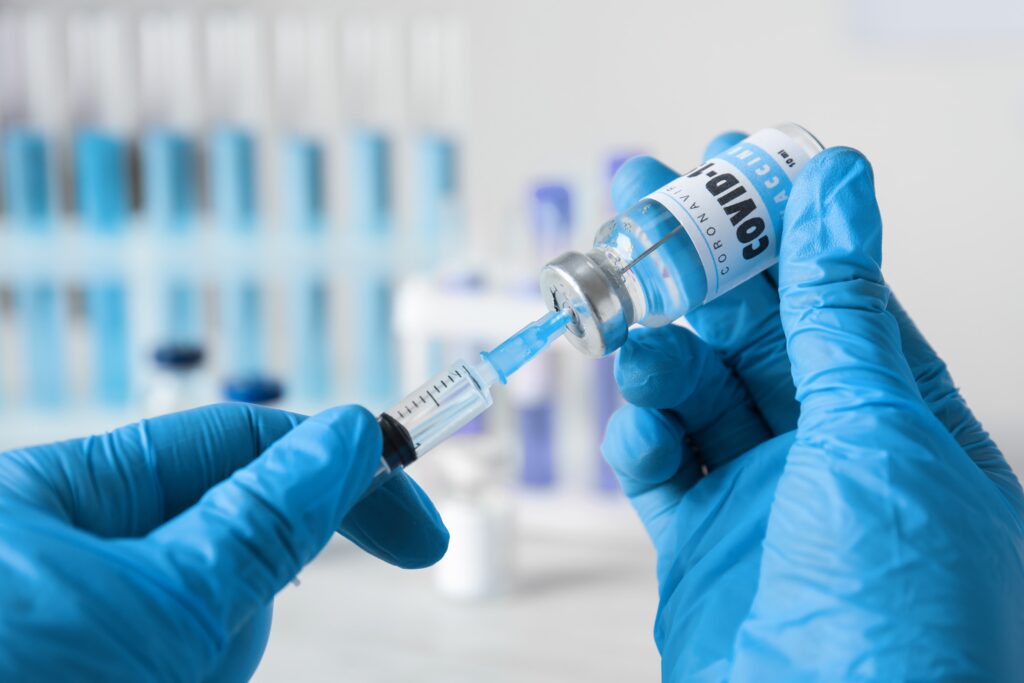
SARS-CoV-2
CARDIOVASCULAR
RECOMBINANT STREPTOKINASE
The source of Streptokinase (SK) gene is S. equisimilis H46 A (the prototype strain for the SK production that is used therapeutically in humans). The SK gene is transferred into a pET Vector (T7 polymerase promoter-based expression vector), the clone is tested for expression and after all the standard molecular biological and biochemical characterizations in the cloning and expression vectors, it is designated as the clone for recombinant Streptokinase (rSK) production. The rSK is produced in E.coli cells as a non-glycosylated polypeptide chain containing 414 amino acids and having a molecular weight of 47kDa. The SK is purified by proprietary chromatographic techniques.
Thrombolytic agents are used to lyse the already formed blood clots in the body where ischemia may cause fatality. Streptokinase is a protein derived from β-hemolytic Streptococci, can exert its thrombolytic action by indirectly activating fibrinolysis by forming a complex with plasminogen. This complex transforms plasminogen into plasmin by promoting the cleavage of the Arg561-Val562 bond in plasminogen. The amino group of Val562 forms the salt-bridge with Asp740 triggering the active center of plasmin, which leads to the dissolution/degradation of fibrin matrix of the thrombus created by the blood clotting cascade
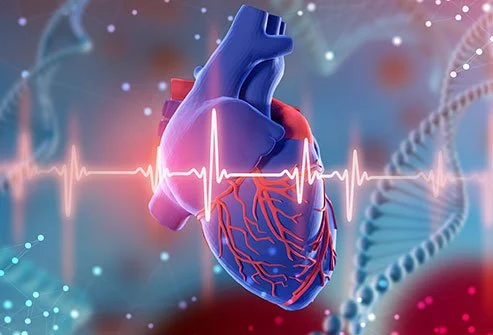
EPYGEN HAS SET-UP STATE OF THE ART BIOPHARMACEUTICAL FACILITY NEAR MUMBAI
Epygen Biotech Pvt Ltd is engaged in research and manufacturing of Therapeutic Proteins for Oncology, Cardiovascular and Vaccines for its own pipeline as well as for clients.
Utilizing its several decades of experience in protein expression, optimization, and purification, Epygen has developed a state-of-the-art microbial facility to produce critical therapeutic drugs and vaccines, adhering to highest regulatory standards.
- Epygen offers an end-to-end manufacturing service from clone till vialing for Biologics & Vaccines, and capable to scale up and manufacture sensitive proteins from the fermentation to cell lysis, solubilisation, refolding and range of purification processes entailing chromatography and membrane separations, supported by complete IPQC and QC.
- The major equipment comprises of Fermenters, range of Bioractors reactors, Cell Separation, Continuous Centrifuge, Cell Lysis Homogenizers, Large scale AKTA Process Chromatography with BPG Columns, TFF filtration, Complete Vial sterilization, Injectable filling and sealing.
- Fermentation and Downstream capacity is based on the process and the expression levels, and the injectable Vial filling capacity is 24 million vials in a year.
- The facility has received RCGM approvals for handling GMO and CDSCO – CGMP Biologics manufacturing audited. It has required DSIR, Environmental and Industrial approvals.
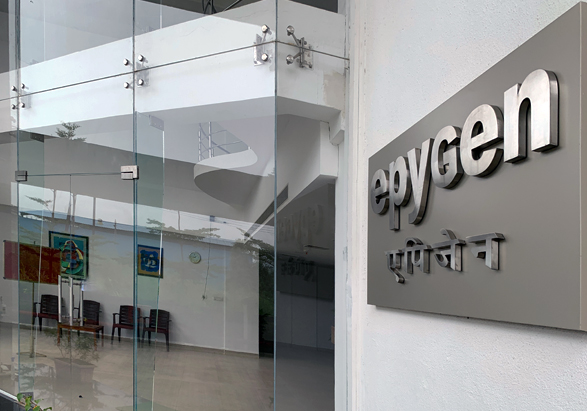
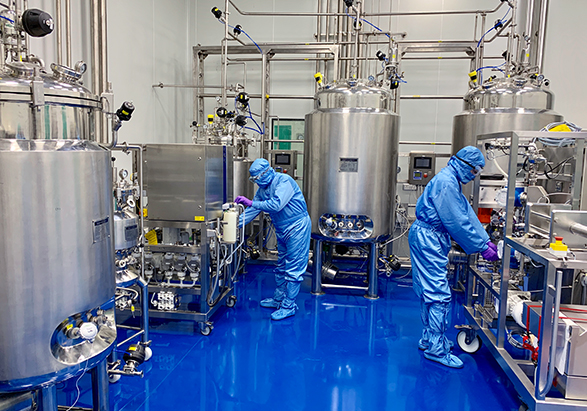
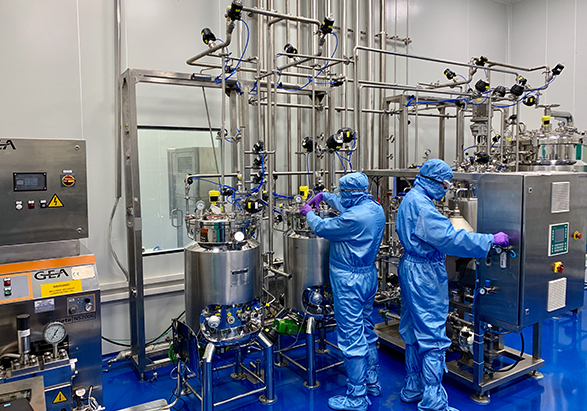
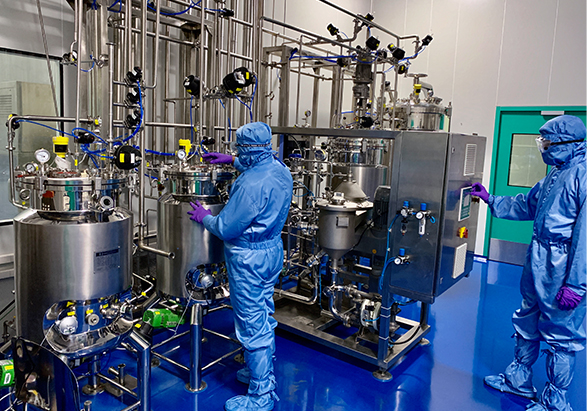
ONCOLOGY
PEGFILGRASTIM
Peg-filgrastim is a pegylated form of filgrastim (G-CSF), to which a 20 kDa methoxypolyethylene glycol propionaldehyde (mPEG-ALD) is covalently bound to the N-terminal methionine residue. The mechanism of action is similar to that of filgrastim with a long half-life (15 to 80 hrs) and single-dose administration. Filgrastim is primarily eliminated by the kidney whereas Pegfilgrastim exhibits nonlinear pharmacokinetics and thereby reduces its clearance from the body. Due to considerable increase in half life, Pegfilgrastim allows reduction of injection frequency in Neutropenia patients and also used for Autologous stem cell transplant.
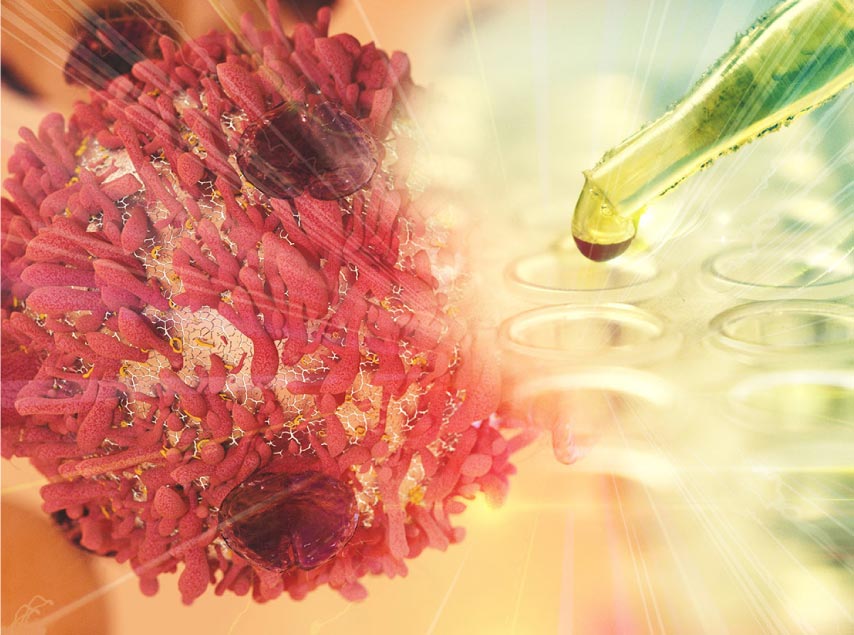
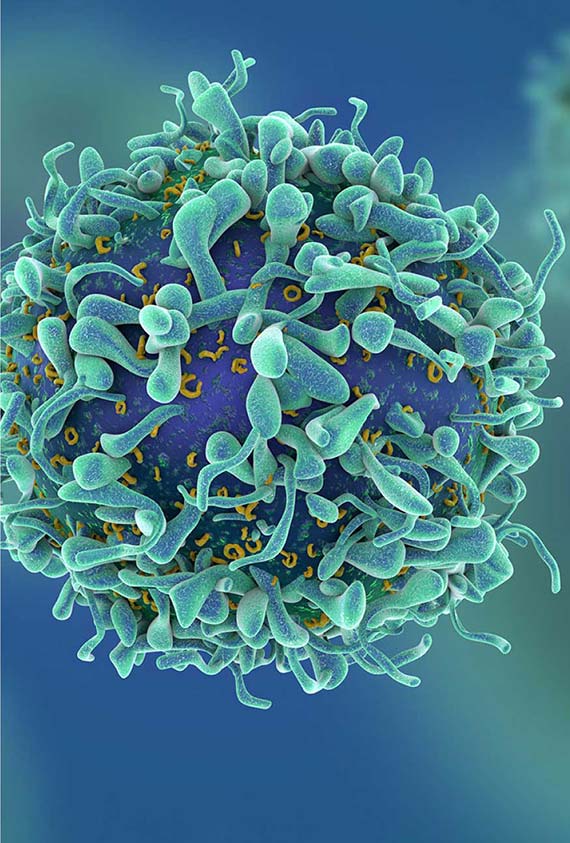
BEVACIZUMAB
Bevacizumab is a recombinant humanized monoclonal IgG1 antibody that will bind to and inhibit the biologic activity of human vascular endothelial growth factor (VEGF). This molecule will contain human framework regions and the complementarity-determining regions of a murine antibody that will bind to VEGF.
The protein is composed of two identical light chains of around 200 amino acids and two heavy chains of around 450 amino acids. The molecular weight of the purified MAb will be around 150 kDa. The codon optimized cDNA coding the heavy and light chains are cloned into expression vector and further engineered for high expression. Chinese hamster Ovary (CHO) cells are then transfected with the Bevacizumab vector construct.
The clone selection is done through a rigorous process of optimization and high level of expression and titers are achieved using state of the art cell culture procedures. The protein is then purified to homogeneity using chromatographic methods.
This mononclonal antibody targeting VEGF was the first FDA approved therapy designed to inhibit tumor angiogenesis. Tumor angiogenesis is a complex process controlled by different proangiogenic & antiangiogenic factors. During the angiogenesis, the abnormalities in the tumor vasculature leads to an increased tumor interstitial fluid pressure and tumor perfusion causing hypoxia mainly due to elevated levels of the transcription factor hypoxia-inducible factor-1. These events further cause an increase in (VEGF) activity promoting angiogenesis. Bevacizumab binds to VEGF-A, an isoform of VEGF that stimulates endothelial cell proliferation and subsequent migration, thereby inhibiting the tumor angiogenesis. It works through a number of potential mechanisms, includes (1) inhibiting the growth of a new blood vessels, (2) tumor vessel regression, (3) change in the tumor vascular function and tumor blood.
HORMONES
TERIPARATIDE
Teriparatide is a Recombinant Human Parathyroid Hormone (PTH :1-34) is a non glycosylated protein molecule, derived from E.coli, It has an identical sequence to the N-terminal 34 amino acid (the biologically active region) of the 84 -amino acid human natural hormone. The clone for PTH is prepared by cDNA based method using E.coli cells using recombinant DNA technology. The fermented cultures containing the protein in inclusion bodies are subjected to harvesting, homogenization, inclusion body purification and chromatographic steps to purify the protein.
Teriparatide is aimed for the activation of osteoblasts more than osteoclasts leading to an overall increase in bone growth of the patients having osteoporosis. Usually, Osteoporosis is treated with anti-resorptive agents (bisphosphonates, estrogens, selective estrogen receptor modulators etc.), but teriparatide has a unique mechanism of action. While endogenous PTH is responsible for bone demineralization, exogenous PTH stimulates osteoblastic activity. Teriparatide reverse the course of osteoporosis by stimulating the new bone formation by adding bone to periosteal surface and increasing trabecular bone volume and connectivity. This drugs is aimed for use in postmenopausal women with osteoporosis.
